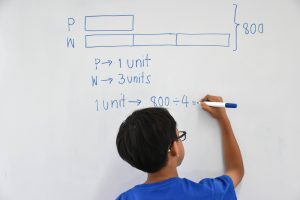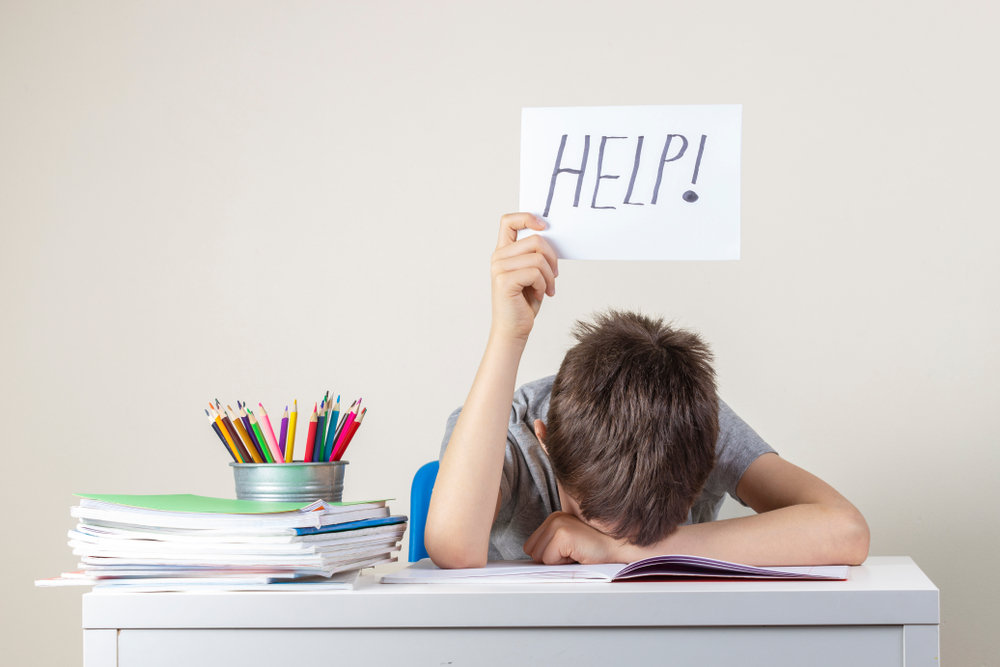Many children experience learning difficulties, so parents might find it difficult to discern when their child is struggling. Sometimes the signs are easy to spot; however, it isn’t always clear most of time. A learning impairment can affect a child’s motivation in school and self-esteem. That’s why learning how to detect learning impairment in your child is crucial.
Learning impairments affect how the brain receives, stores, processes, and responds to information. Therefore, it results in math, reading, writing, and information processing problems. Once you understand the signs, you can then proceed to help your child.
Below, we’ll explain what you should look out for and how you can help your child through any learning difficulty.
6 Signs of Learning Impairment
Some signs are less evident than others. Below are six signs of learning impairment in children to watch out for.
1. Failure to Hit Age-Appropriate Milestones
Sometimes, it seems your child should be doing better than they are, but they just aren’t. Sometimes, this failure to do what other children at their age are capable of, is a sign of learning impairment. This is described as a discrepancy between aptitude and ability. That means there is a clear difference between what a child should be able to do and what they can do.
An example is when your child excels at writing essays but struggles through basic math assignments. If your kid also answers excellently verbally but can’t seem to put down their thoughts on paper, it could be a sign of learning impairment.
2. Trouble Remembering Information

If your child needs to be constantly reminded what to do next, it could be a sign of learning impairment. Of course, we know that children’s memories are imperfect, and they have trouble paying attention. However, If you notice they forget things that other children their age would easily remember, it could be a sign of learning impairment.
They may find it difficult to hold, process, and build on new information. An example is difficulty copying notes from the board or following directions. If your child also finds it difficult to recite multiplication tables even though they had it memorized previously, it could indicate a learning disability.
3. Slow Motor Skill Development
Children with learning impairments may also struggle to develop complex motor skills. You could also notice a hesitation to explore the physical world. Pay attention to how easy they find it is to write down the information you tell them. It could indicate learning impairment if you also notice a problem with coordination or reflexes and other signs.
4. Missing Assignments
If your child has a learning impairment, you might get reports from school that they don’t turn in homework on time. There are varying reasons this could be happening. First, it could be that your kid feels embarrassed to turn in their work because it is incorrect or unfinished. Sometimes, your child might just be struggling with organization and memory and simply forget there was an assignment.
Every kid tends to miss an assignment or two. However, if your child routinely fails to turn in their homework, you should take a closer look to find out what’s happening.
5. Test Anxiety
Although children tend to experience test anxiety now and then, if your child is having more troubles than expected, it could be a sign of learning impairment. On the other hand, if your kid usually has severe pre-test anxiety and fails many tests despite studying studiously, it might be time to take a closer look.
6. Emotional Highs and Lows
Studying usually brings many emotions to a child with a learning impairment. Since they have to keep up with peers and not fall behind on schoolwork, it could be emotionally overwhelming for a kid.
Therefore, if your kid seems depressed or frustrated at school, you might need to do some investigation. Children with learning impairment also tend to develop severe school-related anxiety because they don’t understand why they struggle to keep up with peers.
Help Your Kid with Explico
First, your child might feel self-conscious about having a learning disability. Therefore, you need to build up their confidence by reminding them of everything they’re good at. Also, make them understand that everyone learns differently, and many famous people have a learning impairment.
It’s also essential to assess your child’s development so you know if they need some extra help. At Explico, we understand the need to identify your child’s strengths and weaknesses, so you can help them succeed academically. Our online learning and teaching platforms provide assessment-based learning that will help you identify learning impairments and how you can help your child. So, sign your kid up today for a unique learning process.


